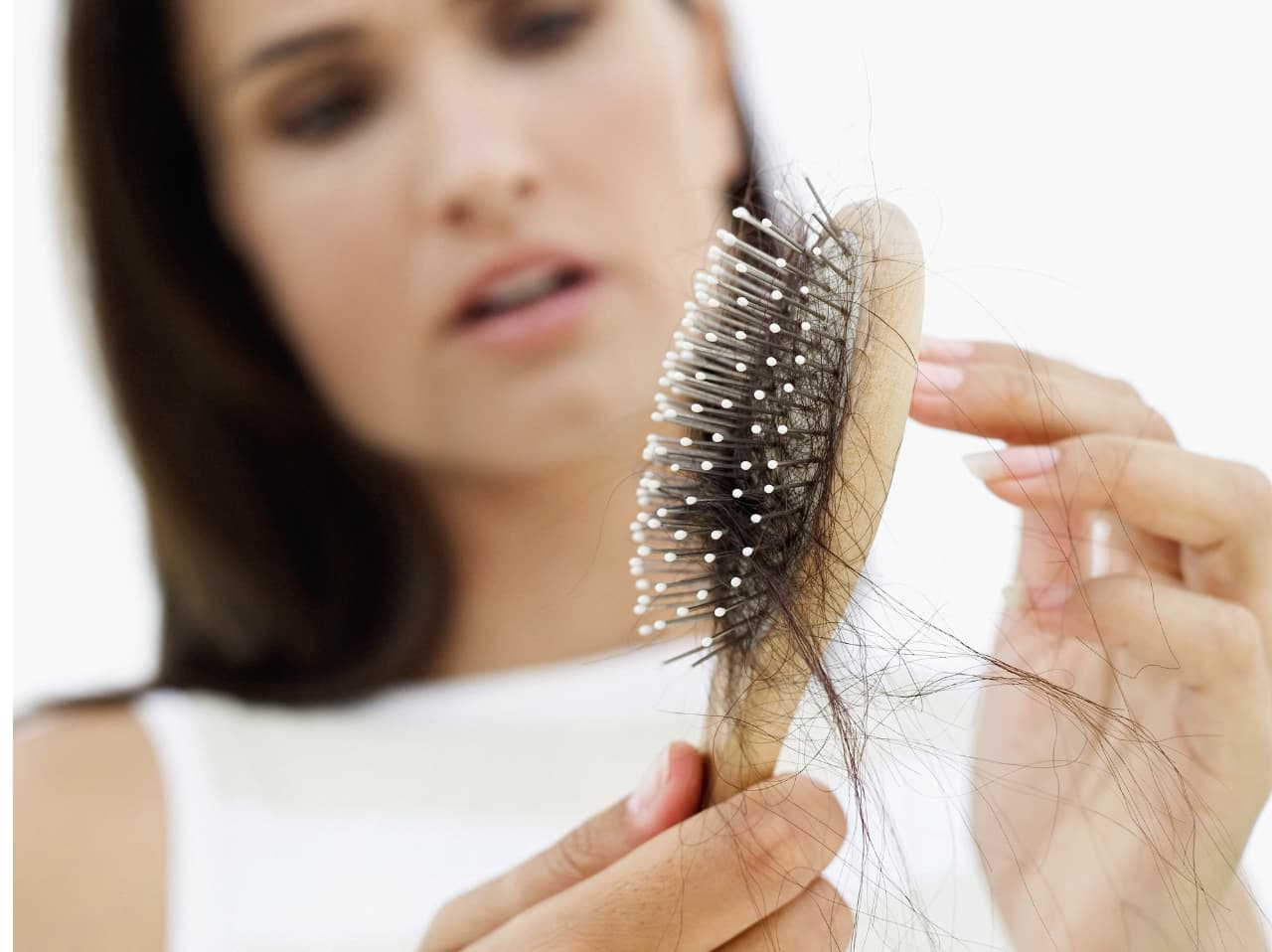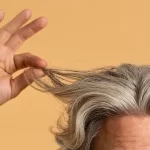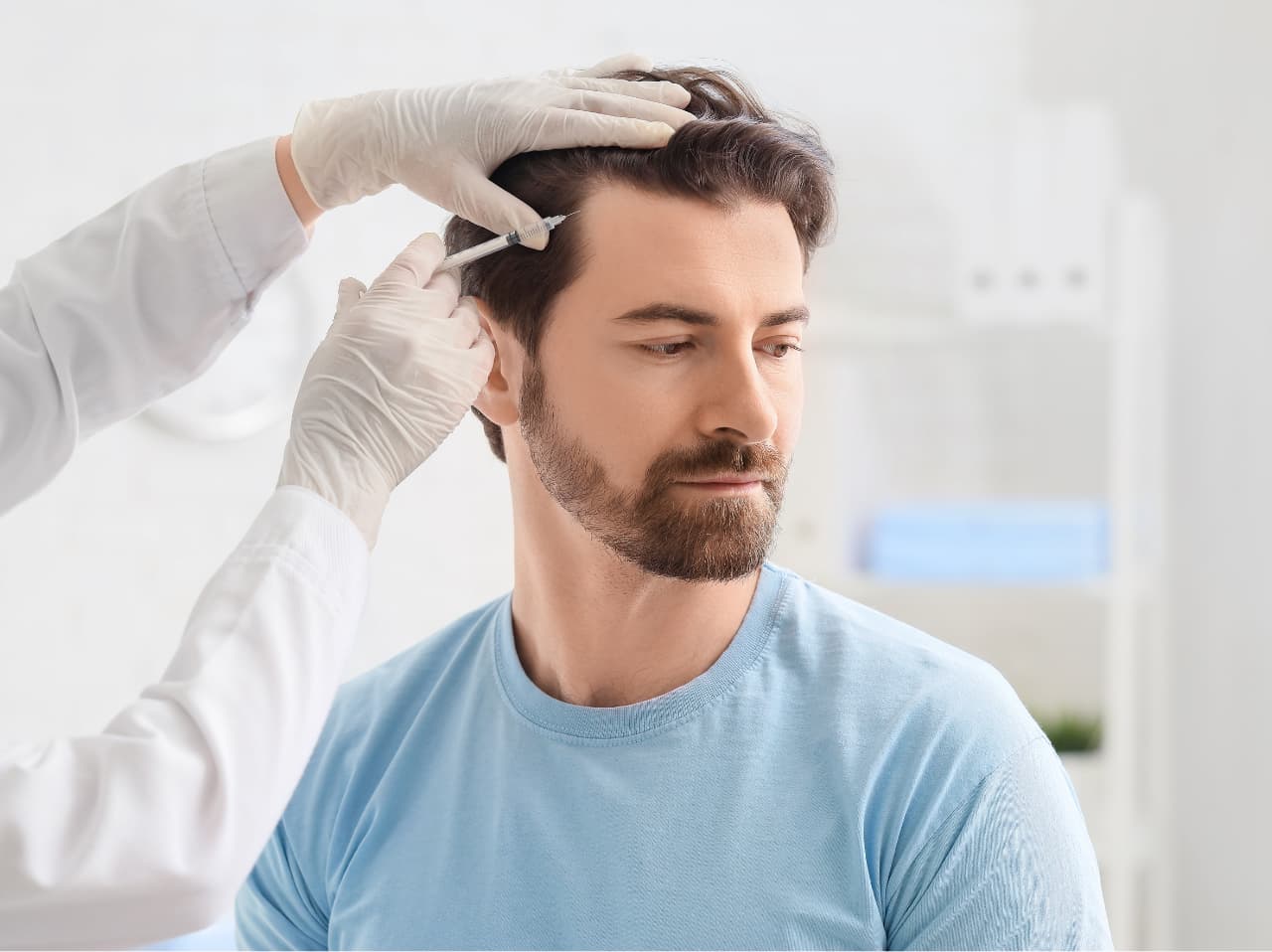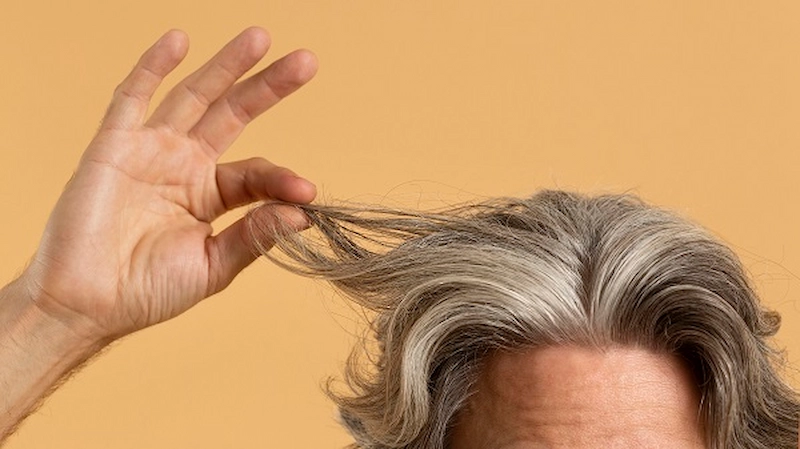Table of Contents
ToggleYes, inflammation can cause hair loss by damaging or weakening follicles over time. When the immune system overreacts, it releases cells that disturb normal follicle activity and shorten the growth phase. This can lead to thinning, patchy shedding, or even permanent damage if left untreated.
Experts at Kopelman Hair explain that finding inflammation early and treating it quickly can prevent long-term hair loss. Managing scalp inflammation restores healthy follicles and supports stronger, steadier growth.
Key Takeaways
Chronic scalp inflammation reduces blood flow, weakens follicles, and causes gradual thinning or shedding.
Detecting inflammation early prevents permanent follicle damage and improves treatment success.
Autoimmune conditions, infections, and irritation from harsh products are leading triggers.
Medical care, PRP, and low-level laser therapy help calm inflammation and stimulate regrowth.
Lifestyle choices like gentle cleansing, hydration, and stress control support long-term scalp health.
What Is Scalp Inflammation?
Scalp inflammation begins when the immune system reacts to irritation, infection, or injury. While this response protects the scalp, chronic inflammation damages healthy tissue and weakens hair follicles.
Over time, inflamed tissue limits blood flow and oxygen delivery, shortening the hair growth phase and leading to early shedding. Without treatment, repeated inflammation may cause scarring or irreversible thinning.
How Inflammation Disrupts Hair Growth
Hair grows in three stages anagen (growth), catagen (transition), and telogen (rest). Inflammation disrupts this process by releasing immune chemicals that attack follicle cells and slow regeneration.
Chronic scalp conditions such as psoriasis, dermatitis, or infections trigger this reaction. As follicles shrink, hair strands become thinner and more fragile until growth stops altogether.
Can Inflammation Cause Hair Loss?
Yes. Ongoing inflammation can cause either temporary or permanent loss depending on its severity. It often appears as diffuse thinning or patchy shedding similar to genetic baldness.
At Kopelman Hair, Dr. Ross Kopelman evaluates each patient carefully to determine whether inflammation, genetics, or both are contributing factors. Early medical treatment calms the scalp, protects follicles, and encourages regrowth before permanent damage occurs.
Common Causes of Hair Loss Linked to Inflammation
Understanding what triggers inflammation helps prevent future loss.
Frequent causes include:
Seborrheic dermatitis: Excess oil causes redness, flakes, and irritation.
Psoriasis: Autoimmune response that forms scaly patches on the scalp.
Folliculitis: Bacterial or fungal infections that inflame follicles.
Allergic reactions: Caused by dyes, harsh shampoos, or hair products.
Poor diet or stress: Increase inflammation throughout the body.
Because these factors often overlap, medical evaluation ensures an accurate diagnosis and effective treatment.
Symptoms of Scalp Inflammation
Inflammation may start subtly before visible hair loss occurs. Common signs include:
Persistent itching or burning
Red or flaky patches
Tightness or tenderness on the scalp
Gradual thinning or small bald areas
Dr. Ross Kopelman uses scalp imaging and dermoscopy to identify early signs of irritation and treat inflammation before follicles are permanently affected.
Autoimmune Conditions and Hair Loss
Autoimmune disorders like alopecia areata, lupus, and thyroid disease can trigger inflammation that targets healthy follicles. The immune system mistakenly attacks the roots, causing circular bald spots or diffuse thinning.
Managing autoimmune inflammation requires medical care rather than cosmetic products. Timely intervention prevents flare-ups and improves outcomes for long-term regrowth.
What Causes Baldness and How Inflammation Fits In
Genetics remain the main cause of baldness, but inflammation often accelerates hereditary loss. Studies show that people with pattern baldness frequently have swollen tissue around shrinking follicles, confirming that inflammation speeds up the process.
Reducing scalp inflammation slows genetic thinning and enhances the success of both medical and surgical restoration treatments.
Diagnosing Inflammation-Related Hair Loss
Accurate diagnosis is key to effective treatment. Dr. Ross Kopelman begins with a full scalp evaluation and detailed medical history. In some cases, he may recommend a biopsy or blood test to check for autoimmune or hormonal factors.
This thorough assessment distinguishes inflammation-related loss from other causes like stress or nutritional deficiencies, allowing for precise and timely care.
Treating Inflammatory Hair Loss
The goal of treatment is to calm inflammation, repair tissue, and protect existing follicles. Kopelman Hair offers targeted solutions designed to restore balance and support lasting hair growth.
Common Treatments Include
Topical medications: Reduce redness, scaling, and itching.
Antimicrobial shampoos or antibiotics: Clear bacterial or fungal infections.
Platelet-rich plasma (PRP): Uses concentrated plasma to heal and stimulate follicles.
Low-level laser therapy (LLLT): Improves circulation and reduces scalp inflammation.
If permanent damage remains after healing, an FUE hair transplant can restore density and natural fullness.
The Role of FUE Hair Transplant in Recovery
When inflammation leaves scarring or inactive follicles, Follicular Unit Extraction (FUE) offers a permanent solution. This minimally invasive technique transfers healthy follicles from thicker areas to thinning zones.
Dr. Ross Kopelman ensures the scalp is fully healed before performing surgery to avoid flare-ups and secure optimal graft survival. The result is smooth, even coverage and consistent new growth.
Lifestyle Tips to Reduce Inflammation
Healthy daily habits help maintain a balanced scalp and lower the risk of inflammation.
Simple steps include:
Use gentle, sulfate-free shampoos.
Stay hydrated and manage daily stress.
Eat a balanced diet rich in antioxidants and omega-3s.
Limit heat styling and avoid tight hairstyles.
These adjustments boost blood flow, strengthen follicles, and help prevent recurring inflammation.
The Importance of Early Treatment
Ignoring scalp irritation allows inflammation to progress, increasing the risk of permanent follicle damage. Seeking professional help at the first sign of redness, tenderness, or shedding ensures better outcomes.
At Kopelman Hair, early diagnosis allows for targeted plans that preserve healthy follicles and stimulate regrowth. Acting early gives patients the best chance to reverse damage and maintain long-term results.
Research and Future Developments
Recent studies confirm inflammation’s major role in multiple hair loss conditions. Scientists have identified elevated levels of inflammatory proteins like IL-1 and TNF-alpha in affected scalps, linking them to follicle damage and slower hair growth.
New therapies aim to block these inflammatory pathways directly, offering faster recovery and more predictable outcomes. Kopelman Hair continues to apply evidence-based treatments and modern diagnostic tools to help patients regain healthy, strong hair.
Restoring Scalp Health and Confidence
Inflammation-related hair loss can be reversible with early diagnosis and consistent treatment. By addressing irritation, balancing the scalp, and using targeted therapies, patients can restore normal growth and prevent future shedding.
With expert evaluation and ongoing care, scalp health improves allowing thicker, stronger hair to return and confidence to grow alongside it.
You can take the next step toward restoring your hair by meeting with our team. Schedule a consultation with Kopelman Hair to get a clear diagnosis and a personalized treatment plan built around your needs. We are here to guide you with expert care and proven solutions.
























